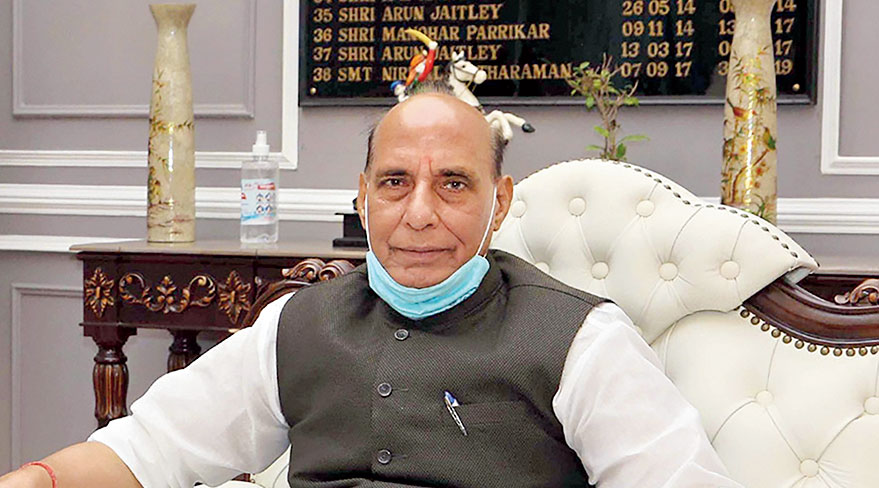In a major reform initiative, the government on Wednesday approved a long-pending proposal to restructure the nearly 200-year-old Ordnance Factory Board that operates 41 ammunition and defence equipment production facilities into seven separate corporate entities to improve its accountability, efficiency and competitiveness.
The decision to corporatise the OFB on the lines of defence public sector undertakings was taken at a meeting of the union cabinet, nearly two decades after the reform measure was mooted to bring professionalism and significantly enhance its productivity.
Describing it as a "historic decision", Defence Minister Rajnath Singh said there will be no change in service conditions of nearly 70,000 employees of the organisation and the decision is driven by efforts to boost India's defence manufacturing sector.
"It is a big decision that complements India's national security requirements. It will help in achieving our targets for defence production. There will be no change in service conditions of the employees," he told a small group of journalists.
Officials said each of the seven entities will be like any other defence public sector undertaking (DPSU) and they will be operated by professional management with a larger goal of enhancing the product range, increase competitiveness and improve cost-efficiency.
They said the reform process is being implemented as part of Prime Minister Narendra Modi's vision for self-reliance in the defence sector.
"All employees of OFB (Group A, B and C) belonging to the production units would be transferred to the corporate entities on deemed deputation initially for a period of two years without altering their service conditions as central government employees," said an official.
The pension liabilities of the retired and existing employees will continue to be borne by the government, according to the Cabinet decision.
At present, the OFB functions under the department of defence production of the Ministry of Defence.
The seven entities will include an ammunition and explosives group, vehicles group, weapons and equipment group, 'troop comfort items group', ancillary group, optoelectronics group and parachute group, the officials said.
The ammunition and explosives group would be mainly engaged in the production of ammunition of various calibre and explosives and its focus would be to exploit the huge potential to grow exponentially including for the export market.
The vehicles group would mainly engage in the production of defence mobility and combat vehicles such as tanks, BMPs (infantry fighting vehicle) and mine protected vehicles. The focus of the group would be to increase its share in the domestic market through better capacity utilisation and also to explore new export markets.
The weapons and equipment group would be mainly engaged in the production of small arms, medium and large-calibre guns, and other weapon systems and is expected to increase its share in the domestic market through meeting domestic demand as well as product diversification, the officials said.
"Today's decision would allow these companies autonomy, as well as help improve accountability and efficiency in the functioning of the 41 factories under the new companies," said another official.
He said the restructuring would help in overcoming various shortcomings in the existing system of OFB by eliminating inefficient supply chains.
The government has also decided to delegate the authority of the cabinet to an empowered Group of Ministers headed by Singh to decide on matters related to the restructuring of the OFB.
At present, the government has to shell out around Rs 5,000 crore annually to pay the salaries of the OFB employees. Additionally, it gives around Rs 3,000 crore to OFB as an operational cost.
The ordnance factories were set up as "captive centres" to serve the needs of the armed forces, but they have been facing performance-related issues for a long time.











